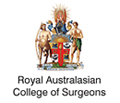Choosing the Right Option
Before making any decision about treatment, your ophthalmologist will need to assess your eyes and general health. They will:
- Carefully examine the external and internal structures of both eyes.
- Assess your vision with modern tests that determine how much vision has been affected.
- Determine whether the cataract can be removed safely and successfully.
- Determine whether any other eye conditions or diseases are present and need treatment.
- Need to know your complete medical history such as health problems, medical risks, allergies, blood disorders and medicines you take.
After this thorough examination, your ophthalmologist will discuss the diagnosis with you and recommend the best treatment.
Treatment Options
Cataract surgery is one of the most commonly-performed procedures around the world today where a surgeon makes an incision, removes the defective lens and then replaces it with a new intraocular lens (IOL) to restore vision.
There are two key procedures available to treat cataracts.
Cataract Surgery
This involves a tiny incision being made with a blade to allow a small instrument (about the size of a pen tip) to break up or wash away the cloudy cataract. An IOL is inserted through the same tiny incision and is unfolded and set into its permanent position.
Laser Cataract Surgery
See better, faster. This new femtosecond laser procedure replaces the initial key steps of cataract surgery currently performed using a blade. Using the femtosecond laser offers a range of benefits over standard cataract treatment, including:
- Greater predictability of the outcome due to accuracy of the laser
- Faster procedure time
- Reduces stress on the eye tissue
- Better/faster healing comfort
- Maximises the IOL
The IOL Intraocular Lens (IOL)
The intraocular lens is designed to reside inside the eye and replaces your own natural lens because it has been clouded over by a cataract, or to change the eye’s optical power.
There is a range of options available and the best one for you will depend on your current vision and your visual goals. Your surgeon will discuss these with you and recommend the best option available. Â
Cost of Cataract Surgery
The cost of cataract surgery varies depending on the procedure and the IOL used. Medicare and/or your health fund will often cover the majority of the cost. We also have no-gap options available.
Trust the experts
Your eyesight is too important to risk. So, talk to experts who are experienced in what they do. We are proud of our expertise, excellence and high ethical standards. Our primary objective is to assure the optimal outcome for your future vision.
You are most welcome to visit our centres, talk with our staff, view surgery if you so choose, speak to our doctors.











